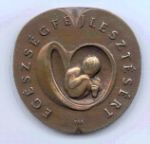3. Folk Music (HU, AT, PT)
Introduction
Folk dance and folk music are important domains of the culture and traditions of any nation. Their acquisition has an effect on personality development, on the acquisition of forms of behaviour and norms. Folk music preserves the traditions of given regions, the acquisition of which contributes to the strengthening of forming a nation.
Getting acquainted with minority cultures can contribute to its application within a broader context. Kodály has already highlighted the strength of singing and its community- and nation educating function.
Singing serves health as well (development of larynx, lungs, diaphragm); it enriches the moods (happiness, sorrow) through developing the infinite richness of human emotions; elevates taste; urges for activity; disciplines; refreshes the spirits; educates for perseverance; increases social feeling and increases responsibility.
We have worked out a model to develop all these skills and abilities. Following the theory of Portuguese, Austrian and Hungarian songs, the reader can find musical notes of compiled songs, containing the songs of minorities living in these countries too. These songs were recorded on a CD also.
Authors
Drª. Isabel Carneiro, Teacher, Music Area, Department of Basic Education, Instituto Politécnico de Lisboa, Escola Superior de Educação.
Dr. Dombi Józsefné Dr. Kemény Erzsébet, CSc. College Professor, Department of Music, University of Szeged, Juhász Gyula Teachers’ Training College. Subcoordinator of the Folk music module.
